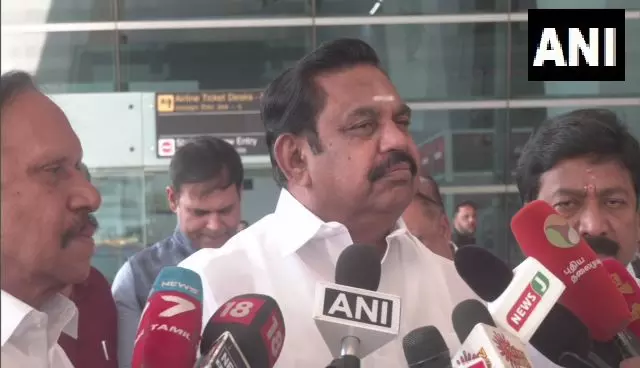
We did not discuss politics or alliances: EPS after meeting Amit Shah in Delhi
Edappadi K Palaniswami's visit to Delhi has sparked off speculation of a revival of the AIADMK-BJP alliance ahead of the 2026 state assembly elections

Even as AIADMK general secretary Edappadi K Palaniswami's visit to Delhi sparked off speculation of a revival of the AIADMK-BJP alliance, the former Tamil Nadu Chief Minister denied that he had discussed 'politics or alliances' on his visit to the capital.
There is still one year for election, he told reporters in Delhi.
After his meeting with Union home minister Amit Shah, Palaniswami replying to questions by journalists said that he did not discuss 'politics or alliances' with Union home minister Amit Shah. "There is nothing related to alliance. We came here for issues of people. The media is spreading the news. There is still one year for election..", he said.
Further, he added that instead of politics they discussed issues concerning the TASMAC corruption, the rising crimes against women, and the deteriorating law and order situation.
"Alliances are one matter, while politices are another. We will make decisions regarding alliances at the time of elections, depending on the circumstances," he added.
Also read: EPS slams ‘empty budget’ as AIADMK, BJP walk out of TN Assembly
More importantly, he said that they had stressed two-language policy should continue in the state. And he also requested the home minister to release funds and implement various schemes for railway projects.
Accompanied by senior AIADMK leader and former minister SP Velumani, EPS’s visit comes at a time of heightened political tension in the state, with the 2024 Lok Sabha elections behind and the 2026 Assembly elections looming on the horizon.
EPS arrived at Shah’s residence on Krishna Menon Road armed with documents detailing law and order concerns in Tamil Nadu, which he is expected to present to the Union home minister.
EPS, of late, has been vocal about alleged corruption in TASMAC, urging the DMK to face the accusations legally and questioning the latter’s alleged resistance to an Enforcement Directorate (ED) probe, and suggesting that such reluctance indicates guilt.

